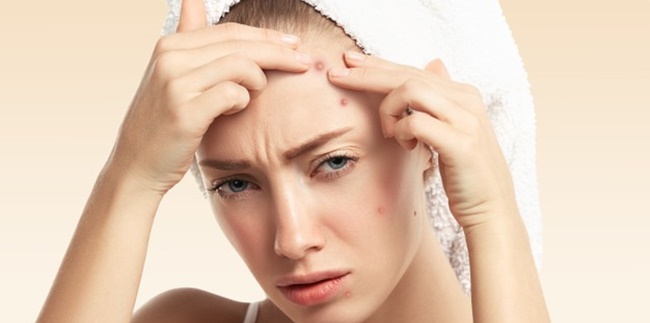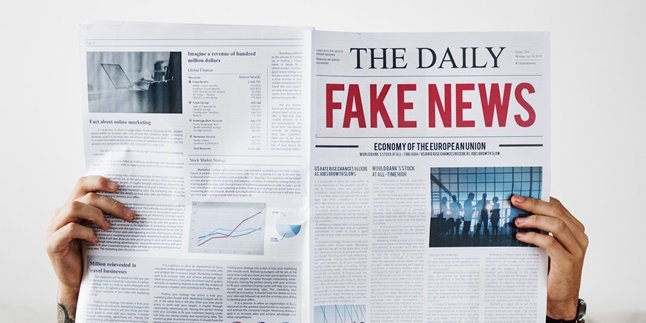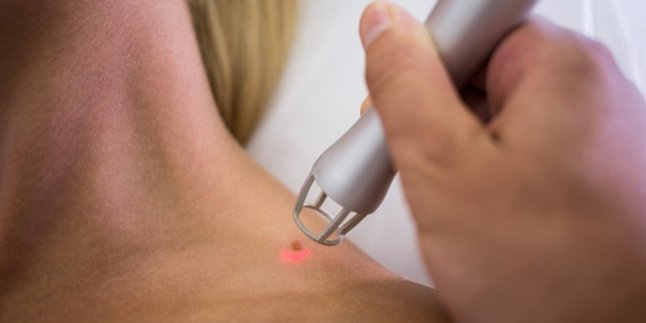Kapanlagi.com - Acne is a skin problem that is quite often complained about. There are various types of acne that can appear on the skin, one of which is cystic acne. The cause of acne can occur due to several triggering factors, including hormonal imbalance.
The appearance of acne on the skin, especially the face, often lowers a person's self-confidence. Because acne can affect the body's appearance. Generally, the cause of acne can occur because the pores are clogged by dead skin cells, dirt, or excessive oil production on the skin.
The same goes for cystic acne, one of the types of acne that is quite often complained about by the public. Cystic acne is characterized by the appearance of large, red, and pus-filled bumps. Some conditions of cystic acne will feel painful when touched by hands or exposed to friction from objects.
Cystic acne is also known as cystic acne, which is a relatively serious type of acne. Because according to healthline.com, cystic acne is a combination of bacteria, oil, and dead skin cells that clog the pores. This condition tends to occur in teenagers, women, or older age groups. This is because there is often an imbalance of hormones that triggers the occurrence of cystic acne.
However, cystic acne can occur due to various triggering factors that need to be known as early as possible. The causes of cystic acne have been summarized by kapanlagi.com from various sources.
1. Beauty Products
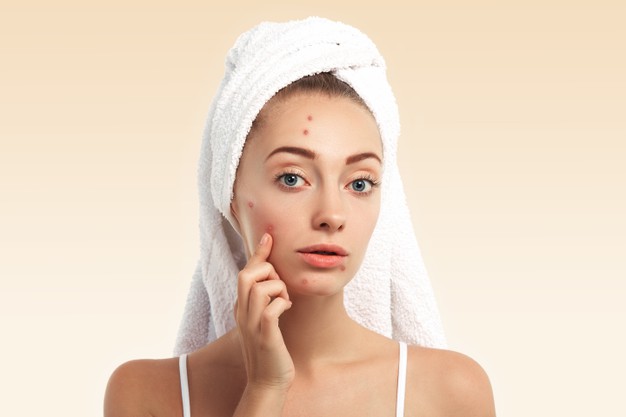
(credit: freepik.com)
The first cause of cystic acne can occur due to the use of certain beauty products. As we know, various types of beauty products can be used to maintain healthy and beautiful skin. Especially for women, beauty products seem to be an essential need that cannot be forgotten.
Unfortunately, mistakes in using beauty products can actually trigger various types of skin problems. One of the most common ones is acne-prone skin due to the use of inappropriate beauty products. According to bola.com, some types of beauty products may cause cystic acne on your skin.
In addition, using heavy makeup that is not properly cleansed can also trigger the appearance of cystic acne. This causes clogged pores, which eventually leads to cystic acne.
2. Hormonal Imbalance
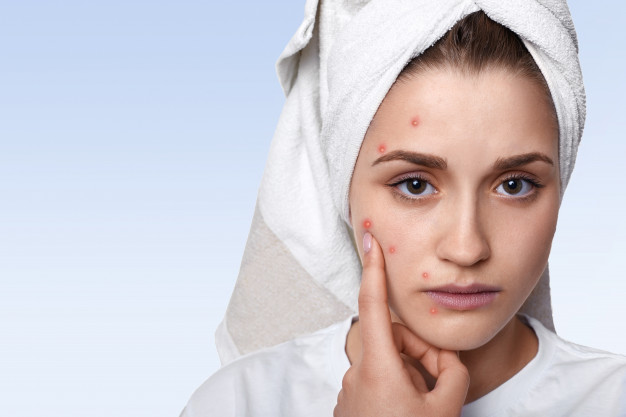
(credit: freepik.com)
As mentioned earlier, the cause of stubborn cystic acne can be triggered by hormonal imbalance. In women, this hormonal imbalance occurs due to several conditions such as menstrual cycle, pregnancy, or menopause. During these periods, hormone changes commonly occur, leading to hormonal imbalance.
According to bola.com, one of the hormones that triggers cystic acne is androgen hormone. Increased levels of androgen hormone can cause excessive oil production, which triggers acne. In addition, the side effects of contraceptive use can also have similar effects, causing hormonal changes and acne.
3. Excessive Sweating
Excessive sweating can also be a cause of cystic acne. Excessive sweating can be triggered by several factors including weather conditions, food, heavy physical activity, or certain medical conditions. Unfortunately, the effects of excessive sweating can actually trigger the appearance of acne.
Excessive sweating can cause the skin to become too moist and oily, which in turn triggers acne. According to alodokter.com, sweat can even worsen the condition of acne. To prevent this, you can do some simple treatments such as washing your face regularly and consuming healthy food.
4. Experiencing PCOS

(credit: freepik.com)
Polycystic ovarian syndrome (PCOS) is a hormonal disorder that occurs in women. This condition causes a woman with PCOS to experience problems with their menstrual cycle and have excessive androgen hormones. In relation to the cause of cystic acne, experiencing PCOS also affects the appearance of acne. This is because PCOS can cause hormonal imbalances that eventually lead to the occurrence of acne. Consultation and examination are necessary to address PCOS properly.
5. Specific Food Intake
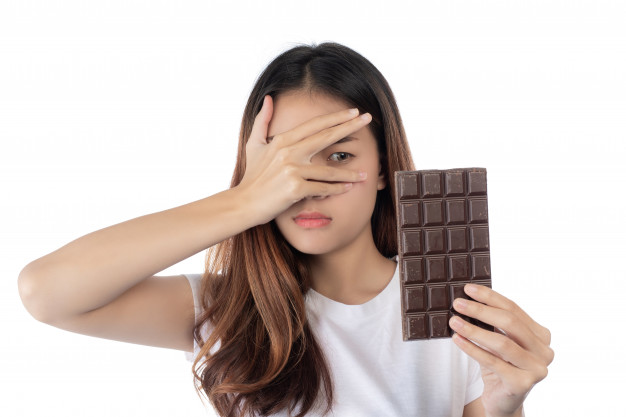
(credit: freepik.com)
Another cause of cystic acne can occur due to unhealthy food intake. According to bola.com, certain foods that contain oil, spicy foods, fast food, and coconut milk-based foods can trigger the occurrence of cystic acne. This happens because these foods can increase sebum production, which causes the occurrence of cystic acne.
Therefore, maintaining a healthy diet is necessary to maintain the body's condition. For example, consuming more fruits, vegetables, and other healthy foods is a simple way to do so.
6. Side Effects of Medications
Quoting from medicalnewstoday.com, the cause of cystic acne can be caused by the side effects of certain types of medications. As is known, several types of medications often cause various side effects ranging from dizziness, nausea and vomiting, or excessive sweating. However, it turns out that the side effects of medications can also trigger a more severe acne condition. Some of these medications include corticosteroids, lithium, phenytoin, and isoniazid. Consultation with a doctor can be considered if experiencing side effects after using these medications.
7. Genetics
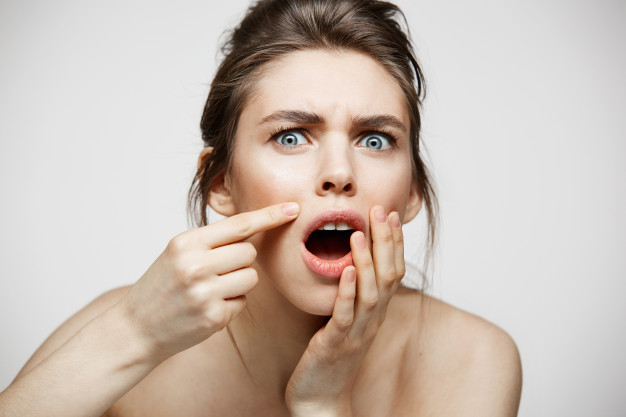
(credit: freepik.com)
The cause of cystic acne can also be caused by genetic factors. In this case, genetics contribute to the acne cases experienced by someone. For example, if parents have a history of cystic acne or have oily skin types, then a similar situation can also be experienced by a child. Because cystic acne is known to be prone to appear on oily skin. So, you need to be aware if you have oily skin types that can trigger the emergence of acne.
8. Accumulation of Dead Skin Cells
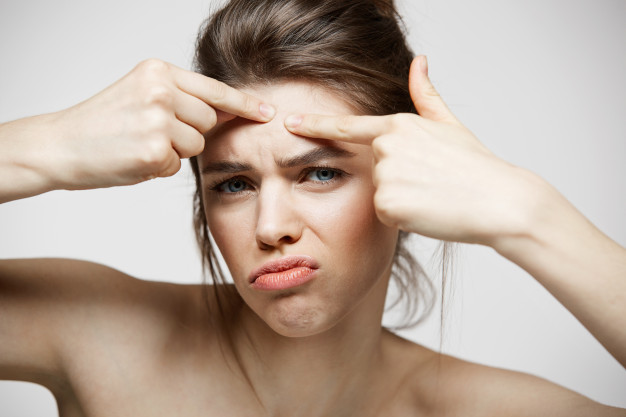
(credit: freepik.com)
Abnormal growth of dead skin cells can also trigger the occurrence of cystic acne. According to bola.com, the cause of cystic acne is due to the abnormal growth of these skin cells, which is caused by the skin regeneration process that does not function optimally. In other words, dead skin cells cannot regenerate quickly, resulting in accumulation in the pores. The accumulation of dead skin cells can clog pores and be present in hair follicles. This is what causes acne to appear in general, including cystic acne.
9. How to Treat Cystic Acne
Here are some easy ways to treat cystic acne and prevent its occurrence:
- Avoid washing your face too often.
- Use a gentle cleanser and warm water to wash your face.
- Avoid abrasive soaps and do not rub too harshly.
- Do not squeeze pimples with your hands.
- Avoid heavy makeup for daily use and clean makeup thoroughly.
- Use antibiotics as directed by a doctor.
- Use acne medication to prevent acne growth.
These are the 8 stubborn causes of cystic acne and how to treat it. Consultation and examination with a doctor can be considered to address and manage cystic acne.
(kpl/nlw)
Disclaimer: This translation from Bahasa Indonesia to English has been generated by Artificial Intelligence.
